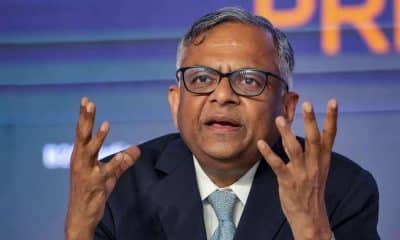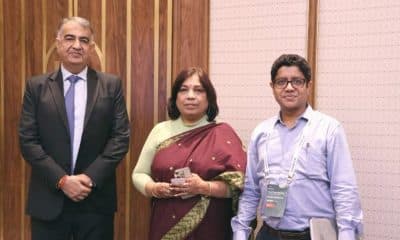India leads the world in building shared digital infrastructure: Omidyar Network & BCG Report
Standing at a new frontier, India is leading the world in building shared digital infrastructure, says a report by Omidyar Network India and Boston Consulting Group (BCG). It said that this could be leveraged by both the government and the private sector to unlock new solutions and enhance citizen experience.
The report describes this as Open Digital Ecosystems or ODEs. This is open and secure digital platforms that enable a community of actors to unlock transformative solutions for society, based on a robust governance framework. It identifies three layers to help bring an ODE to life – digital platforms comprising technology infrastructure and solutions built on top; community comprising builders, facilitators and end-users; and a third layer of governance which consists of laws and rules and the accountable institutions that uphold them.
The ODE approach, which the report highlights, says the government should focus on creating the digital commons, enable interoperability between siloed systems so that innovators can build on top. This can be achieved by leveraging open source software, data, standards, licenses and APIs. The National Digital Health Mission, which was recently announced by Prime Minister Narendra Modi, which aims to create an integrated, interoperable digital health platform for all health-related services, is an example of the ODE approach. Initiatives, such as India Stack, DIKSHA and the National Urban Innovation Stack have also adopted a similar approach in other sectors.
Roopa Kudva, Omidyar Network India MD, said ODEs are the new frontier of digital India. “India has been a pioneer in the movement to build ‘digital highways’, we were one of the first developing countries to have a population scale Digital ID initiative, and have built digital payments infrastructure such as UPI.” Kudva pointed out that even during the pandemic, the government was able to transfer Rs 37,000 crores directly to the bank accounts of 16 crore citizens using India’s digital infrastructure. “We must take care of critical issues like privacy and agency of individuals over their personal data.”
J Satyanarayana, Advisor National Digital Health Mission and former chairperson UIDAI, said digital ecosystems could evolve faster if the right environment is created. This includes open-standards-based architecture, data policies, collaborative design, and innovation. He said leveraging legacy systems could help adoption and well-crafted ODEs will open up a huge world of opportunities for innovation and value-added services.
Furthermore, the report forecasts that by 2030, 10 high potential National ODEs (NODEs) in sectors like health, agriculture, justice, etc. can collectively create new economic value of US$500+ billion or 5.5 per cent of the projected GDP in 2030, and also generate US$200+ billion in savings









































